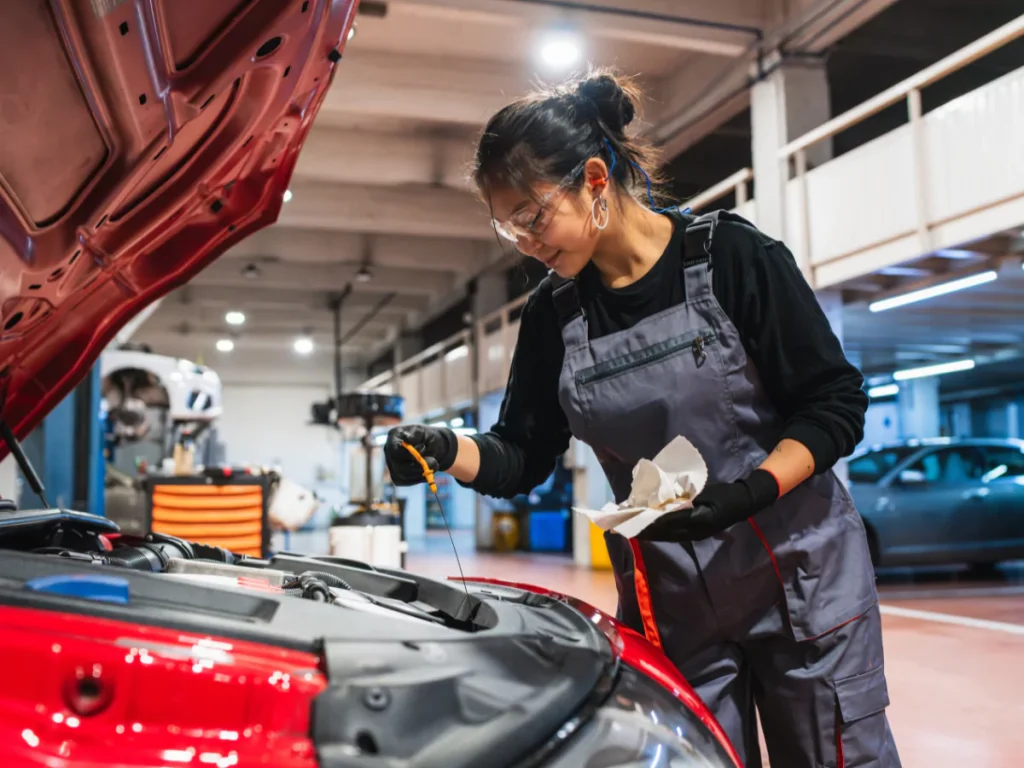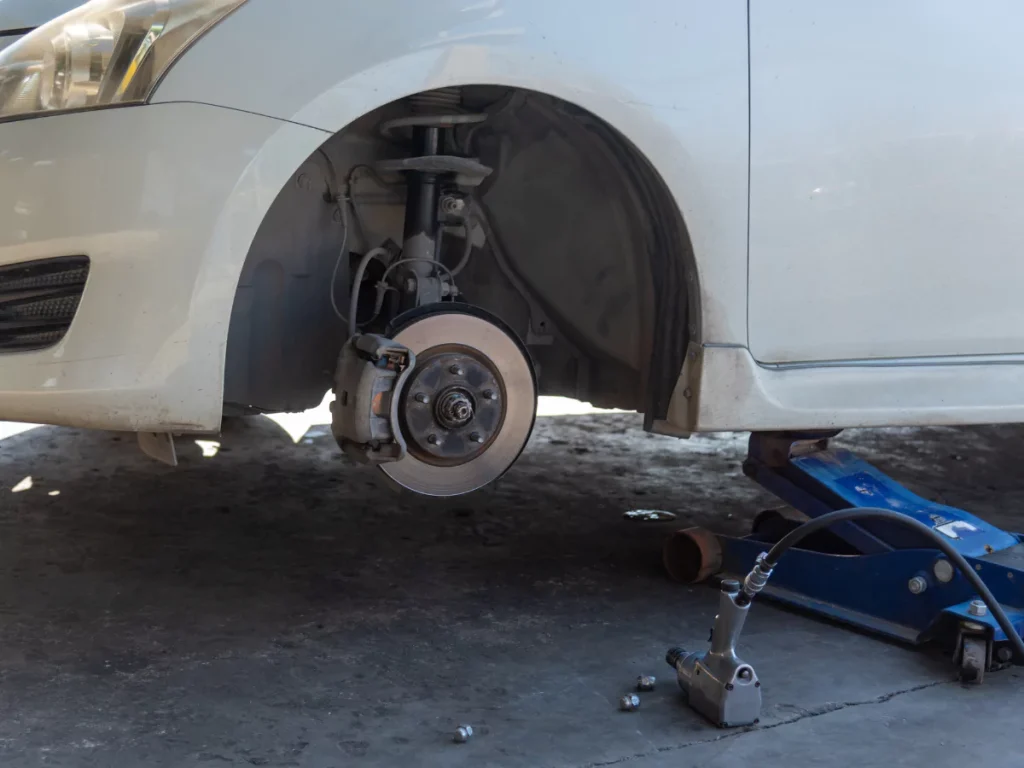Why a Used Car Inspection Isn’t Optional
Buying a used car might feel like a great way to save money, but skipping the inspection is a gamble. While the vehicle may look fine on the outside, hidden issues could cost you hundreds—or even thousands—down the road. An inspection helps you avoid falling into a money pit.
A pre-purchase inspection reveals the condition of critical components like the engine, brakes, transmission, suspension, and more. It’s not just about spotting what’s wrong—it’s about gaining leverage. You can use inspection results to negotiate a better deal or walk away if the car’s not worth the price.
What Is a Pre-Purchase Inspection?
A pre-purchase inspection (PPI) is a detailed checkup performed by a certified mechanic before you buy a used vehicle. The goal is to assess the car’s mechanical, cosmetic, and safety condition. It usually includes examining the undercarriage, electrical systems, tires, fluid levels, battery life, and even frame damage.
Unlike a standard service visit, a PPI is tailored for buyers. It’s your insurance against surprise repairs, undisclosed damage, or poor maintenance history. Mechanics often use diagnostic tools to spot electronic or sensor issues that aren’t visible during a regular test drive.

Who Should You Trust With a Used Car Inspection?
Not all mechanics are created equal. Look for certified, independent professionals who specialize in used vehicle evaluations. Dealerships may offer inspections, but third-party inspectors tend to be more neutral.
Local professionals, such as Texas First Auto Inspections, are known in the Beltway Crossing Business Park area for their thorough, unbiased evaluations. They focus solely on inspections, so there’s no pressure to upsell services or repairs.
Why You Shouldn’t Rely on the Seller’s Word
Trust is great, but documentation is better. Sellers may not always disclose issues—or they may not even know them. An independent inspection eliminates doubt and lets you verify the condition for yourself.
Sometimes sellers claim “it runs great” or “has no issues.” But without a thorough inspection, that’s just a guess. You’re investing in your own protection by verifying the facts.
Red Flags a Used Car Inspection Can Uncover
An inspection doesn’t just check for minor wear and tear. It can reveal:
- Frame damage from previous accidents
- Major engine or transmission issues
- Brake system wear
- Electrical problems
- Signs of flooding or corrosion
- Odometer fraud
Catching these early can save you from a purchase that leads to constant trips to the mechanic.
How an Inspection Saves You Money Long-Term
Think of an inspection as a small upfront investment that could save you thousands. If the mechanic finds $2,000 worth of repairs needed, you can ask the seller to lower the price—or skip the deal. You also get peace of mind knowing you’re not buying someone else’s problem. That’s especially important if you’re purchasing a used vehicle for daily commuting or long trips.
Inspection vs. Test Drive: What’s the Difference?
A test drive gives you a feel for how the car handles. But a professional inspection dives deeper. Mechanics check what your eyes and ears can’t catch—like engine diagnostics, fluid quality, and suspension issues. Even if the test drive goes smoothly, hidden problems might still exist. An inspection fills in those gaps, offering a complete picture.
Can You Skip the Inspection for Certified Pre-Owned (CPO) Cars?
CPO vehicles are inspected by the dealer and often come with warranties. That’s a good start—but you’re still relying on the seller’s in-house evaluation. Having your own inspection done—especially if you’re buying the car outside a major dealership—gives you a second opinion. It’s a safeguard, even with CPOs.
The Role of Texas First Auto Inspections
If you’re in or near Beltway Crossing Business Park, Texas First Auto Inspections offers specialized pre-purchase inspections. Their service is designed for buyers who want clarity before making a decision.
They perform comprehensive checks on the engine, drivetrain, cooling system, brakes, electrical systems, tires, suspension, and more. You’ll get a detailed report with images and recommendations, which helps you make an informed choice. Their reputation for honest and detailed evaluations makes them a go-to for used car buyers in the area.
How Much Does a Used Car Inspection Cost?
Depending on the shop and the car’s complexity, a thorough inspection typically ranges between $100 to $250. Mobile inspectors might charge a bit more for convenience. But when you consider the cost of even one unexpected repair, it’s a bargain. If you’re buying a higher-end or foreign model, expect slightly higher rates since diagnostics and parts can be more complex.
When Is the Best Time to Get a Used Car Inspected?
Always request an inspection before you finalize any paperwork or send a payment. Ideally, it should happen after you’ve test-driven the car but before you commit. Some sellers may be hesitant about inspections. That alone can be a red flag. A reputable seller should welcome it.

What to Expect During the Inspection Process
Here’s a simple breakdown of what typically happens:
- Appointment is scheduled with the seller’s consent.
- The mechanic arrives (if mobile) or the car is brought to the shop.
- The vehicle undergoes testing, from visual checks to electronic diagnostics.
- A detailed report is provided, often with photos, comments, and repair estimates.
The whole process takes around 1-2 hours, depending on how thorough the inspection is.
Common Myths About Used Car Inspections
Let’s clear the air:
- “It’s too expensive.” Compared to repair costs? It’s a bargain.
- “I know cars, I don’t need it.” Even seasoned buyers can miss things.
- “Dealers inspect their cars already.” True—but independent checks catch what they might overlook or ignore.
Avoid falling for these myths—they can end up costing you more in the long run.
Used Car Inspections for First-Time Buyers in Beltway Crossing Business Park
If this is your first time buying a used car, an inspection is non-negotiable. You may not know what to look for, which puts you at a disadvantage during negotiations. An inspection levels the playing field. It gives you the knowledge and confidence to ask the right questions and walk away if the car doesn’t meet your expectations.
Texas First Auto Inspections Serving the Beltway Crossing Business Park Community and Beyond in Houston
Texas First Auto Inspections is dedicated to serving the diverse needs of the local community of Houston, including individuals residing in neighborhoods like Beltway Crossing Business Park. With its convenient location near landmarks such as the McDougle Elementary School and major intersections like Vine Crest Dr. & Prairie Oak Dr. (coordinates: 29.931423285539193,-95.50418329497663), we offer the best car inspection service Houston.
Get Best Car Inspection Service at Beltway Crossing Business Park Now
Navigate from Beltway Crossing Business Park to Texas First Auto Inspections Now
Smart Car Buying Starts with Smart Decisions
Getting a used car inspection isn’t about being overly cautious—it’s about making an informed, strategic choice. A modest upfront cost can save you from major financial setbacks and give you peace of mind.
If you’re around Beltway Crossing Business Park, Texas First Auto Inspections provides reliable, unbiased evaluations that help you make the right move. Their thorough process ensures that what you see is what you’re really getting. Don’t let surprises ruin a good deal. Inspect before you invest.
FAQs
1. Can I request an inspection for a car I’m buying from a private seller?
Absolutely. In fact, it’s highly recommended. Private sellers might not disclose all issues, so an independent inspection protects your interests.
2. Does the seller have to agree to an inspection?
No, but their refusal can be a red flag. Most honest sellers understand it’s a reasonable request and will allow it.
3. How long does a typical inspection take?
On average, it takes 60 to 90 minutes. Complex vehicles or inspections with extra diagnostic testing may take longer.
4. Can I be present during the inspection?
Yes, and it’s often helpful. You can ask questions in real time and get clarification from the mechanic.
5. What if the car fails the inspection?
It’s not about passing or failing, it’s about knowing what repairs are needed. You can negotiate a better deal or decide to walk away.





